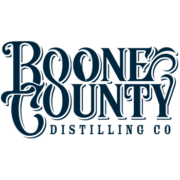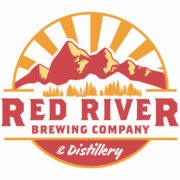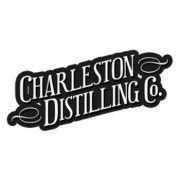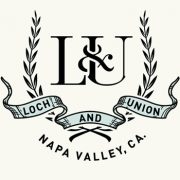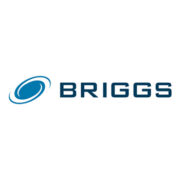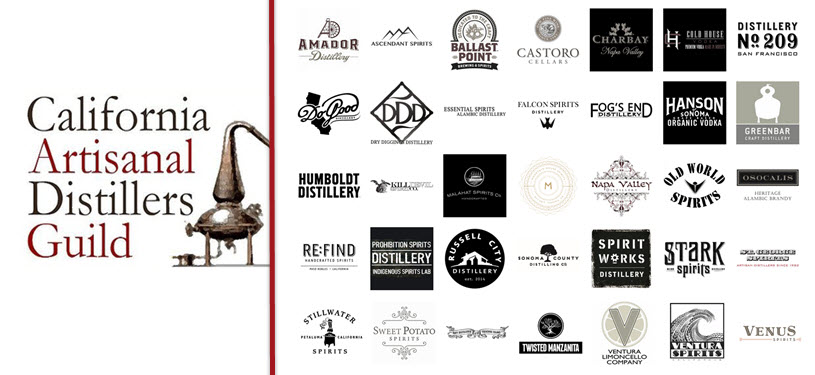
The California Craft Distillers Act of 2015 – AB 1295 was officially signed by Governor Jerry Brown. The law goes into effect on January 1, 2016. The purpose of the law is to provide greater equity between small craft distillers, those that produce less than 100,000 gallons per fiscal year and their brethren beer and wine producers. The new law will allow craft distillers to sell up to three bottles of distilled spirits per person per day at an instructional tasting, to hold private events at the distillery, and to have ownership in up to three restaurants.
The passing of the Craft Distillers Act is the biggest change to happen to CA craft distillers since the end of prohibition, and finally lets us into the playground with our colleagues across the country.
~ Timo Marshall, Spirit Works Distillery and President of the California Artisanal Distillers Guild
In the past, CA wineries and breweries were also not allowed to sell direct due to original prohibition tied-house laws, the state changed the laws and those industries have flourished. Now, it’s time for distilleries to do the same.
“This historic legislation changes prohibition era laws for craft distillers to reflect the modern marketplace. Assembly Bill No. 1295 allows craft distillers to operate in a similar manner as wineries and breweries under existing law,” said Assembly member Marc B. Levine (D-San Rafael) sponsor of the bill.
“By giving craft distillers the same privileges as wineries and breweries, thousands of jobs will be created and California brands will be able to compete in the international marketplace,” said Cris Steller, executive director of the California Artisanal Distillers Guild and owner of Dry Diggings Distillery in El Dorado Hills.
Stay Informed: Sign up here for our Distillery Trail free email newsletter and be the first to get all the latest news, trends, job listings and events in your inbox.
It’s kind of ironic, it seems the example I often hear around distillery tours and tastings that most distillers say is, “We want to be the NAPA valley of bourbon” or “We want to be the NAPA Valley of craft spirits” while all along CA distillers couldn’t do it themselves. That’s all changed.
Craft Distillers Act of 2015 – AB:1295
This bill enacts the Craft Distillers Act of 2015 and creates a new craft distiller’s license applicable to individuals who produce less than 100,000 gallons of distilled spirits annually, exclusive of brandy.
New “Craft Distiller’s License” Required
Distillers will have to purchase a new license to implement these changes for their distillery. Licensees will be required to pay an application fee of $600 and an annual renewal fee of $300 for the craft distiller’s license.
The new law provides the following privileges:
- Direct to Consumer (DTC) Sales: Craft distillers may sell to consumers participating in a distilled spirits tasting, on the distiller’s licensed premises, up to the equivalent of 2.25 liters of distilled spirits in any combination of prepackaged containers per day/per consumer.
- Can sell other spirits on premise at private parties: Craft distillers may host private events at their premises, provided that any alcoholic beverages served at the event that are not manufactured by the craft distiller are purchased from a licensed wholesaler.
- Can Own Up to Three Restaurants: Craft distillers may own an interest in up to three on-sale licenses provided that one of the restaurants is located on the licensed distilling premises and that the other on-sale licensed retail premises offer competing brands of alcoholic beverages in addition to the products the craft distiller manufactures.
- Can Serve Up to 1.5 Ounce Samples: This bill modifies an existing provision of law that currently allows distillers to offer six, one-quarter ounce tastings, per individual/per day, to instead permit distillers to combine the current limitation into one single 1.5 ounce tasting.
- Cocktails – Can Serve Mixed Drink Samples: The samples served may now me mixed to include a non-alcoholic mixer. People in the industry may prefer their drinks neat but, most consumers and distillery tour visitors don’t do straight shots. This will make for a much better customer experience for distillery visitors and ultimately help to sell more products.
California craft distillers will soon be ringing in the new year with new ways to make their customers happy and many new business opportunities. Great progress!

